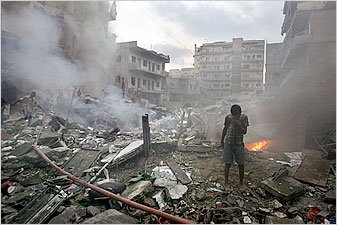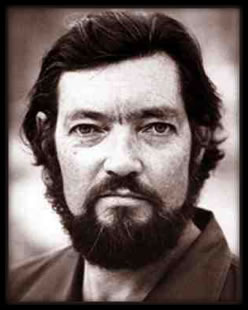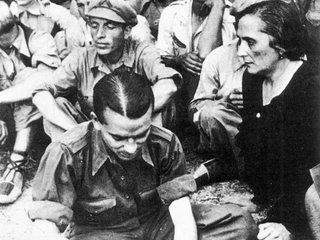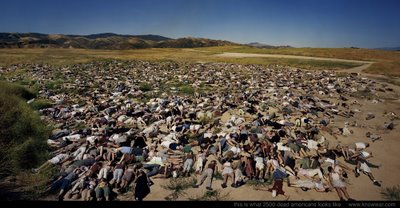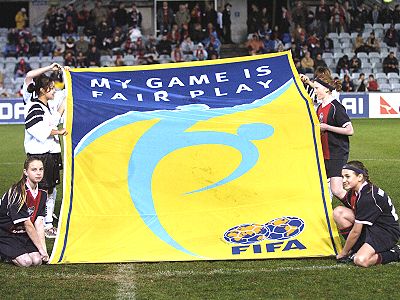 Zinidine Zidane
Zinidine ZidaneSunday France and Italy square off in Berlin for the final game of the World Cup. The game will end a month of games that commanded intense attention, stopping commerce in various countries for 2 hours at a time so that everyone could stare at the television transfixed and then afterwards discuss nothing but the game for days on end. But because the finals involve two European powerhouse teams-- the African and American teams were all eliminated long ago-- there is no Cinderella. And no real underdog to cheer on. And no upset in the making. No. Quite to the contrary, the finals engender in desde Desdemona and in me the same feelings that arise from living in the economic and military shadow of the gigantic, bellicose power of the North. The feeling of being dwarfed, outplayed, pushed around, relegated to obscurity, and thoroughly disrespected. So this is how Grenada and Panama felt when they were invaded for their own good. So this is how NAFTA feels to America's neighbor to the South.
I admit that in the beginning, hoping against hope, we supported the Soca Warriors of Trinidad and Tobago, who lost 2 games and magically tied one and were then eliminated. And then we supported Mexico, who advanced briefly, only to be eliminated, leaving behind some fantastic, inspiring beer commercials for Corona and the latest installment of an entire nation questioning whether the team is good enough, Ricardo LaVolpe, the new Mexican coach, notwithstanding. And then we supported Ghana, who advanced from the Group of Death, advancing beyond the US underchievers and slackers, only to be eliminated. And then of necessity we supported Argentina, and Brazil, and finally Portugal, all of whom were unceremoniously eliminated by European teams that played like well oiled diesel engines and with a similar level of excitement. Brazilian fans were, of course, outraged that there was no evidence of "the beautiful game." No kidding. The European corporate juggernaut focuses on bruising defense, artistic flourishes be damned, and if the game resembles a 90 minute abridgment of the Peloponnesian War, so be it. In sum, a lot of what's happened so far was just tedious. And those of us who love the underdog have had to shift our allegiances repeatedly.
This is not to say that there weren't a few moments of utter delight. England, who should beat everyone all the time but has managed to be eliminated early for 40 years now, once again outplayed itself and was eliminated. David Beckham, the captain, demonstrated that, like John Coltrane Ramirez and yours truly, he cannot really run any more, and last week resigned his captaincy in faux regret. The other good news was Mexico. Mexico thrashed Iran in an early game that Iranian women were not permitted to see in the stadium, though apparently watching men with bare legs on television does not offend Sharia as much. Eliminating Iran from the Cup is always a good thing, beating them 3-1, priceless.
Which brings us to Sunday's battle between Pinot Grigot and Cote du Rhone. Both teams are called "the Blues" (in their own languages). Both have some big stars, though France's Zinidane Zidane is the biggest. And so, because the commentators appear now to think that Italy will win this game, all of desde Desdemona has, of course, thrown its support behind the nominal "underdog", the French, behind les Bleus. And how exactly do we do this? On Sunday at 2:30 AT (1:30 ET) we have cold 2004 White Cote du Rhone and baked brie and apples. And some other French food (not French fries, silly people). Pate anyone? Then we turn off ABC HD so that we will not have to listen to the inept, boring, repetitive, dreadful American commentary, and we turn on the game in Spanish. We don't really care what they're saying. We don't really understand every word. It doesn't matter. No. We just do it for the excitement, for the joy of the game. And afterwards, we will sit in the hot tub and argue about the game for a few days if the French lose. And if they win, we will complacently smile and nod and say, "You know, that's not bad." But in our heart of hearts, we're waiting for the World Cup of 2010, and secretly nursing the idea that Ghana, or Cameroun, or Mexico, or even Argentina will finally set the world right.
